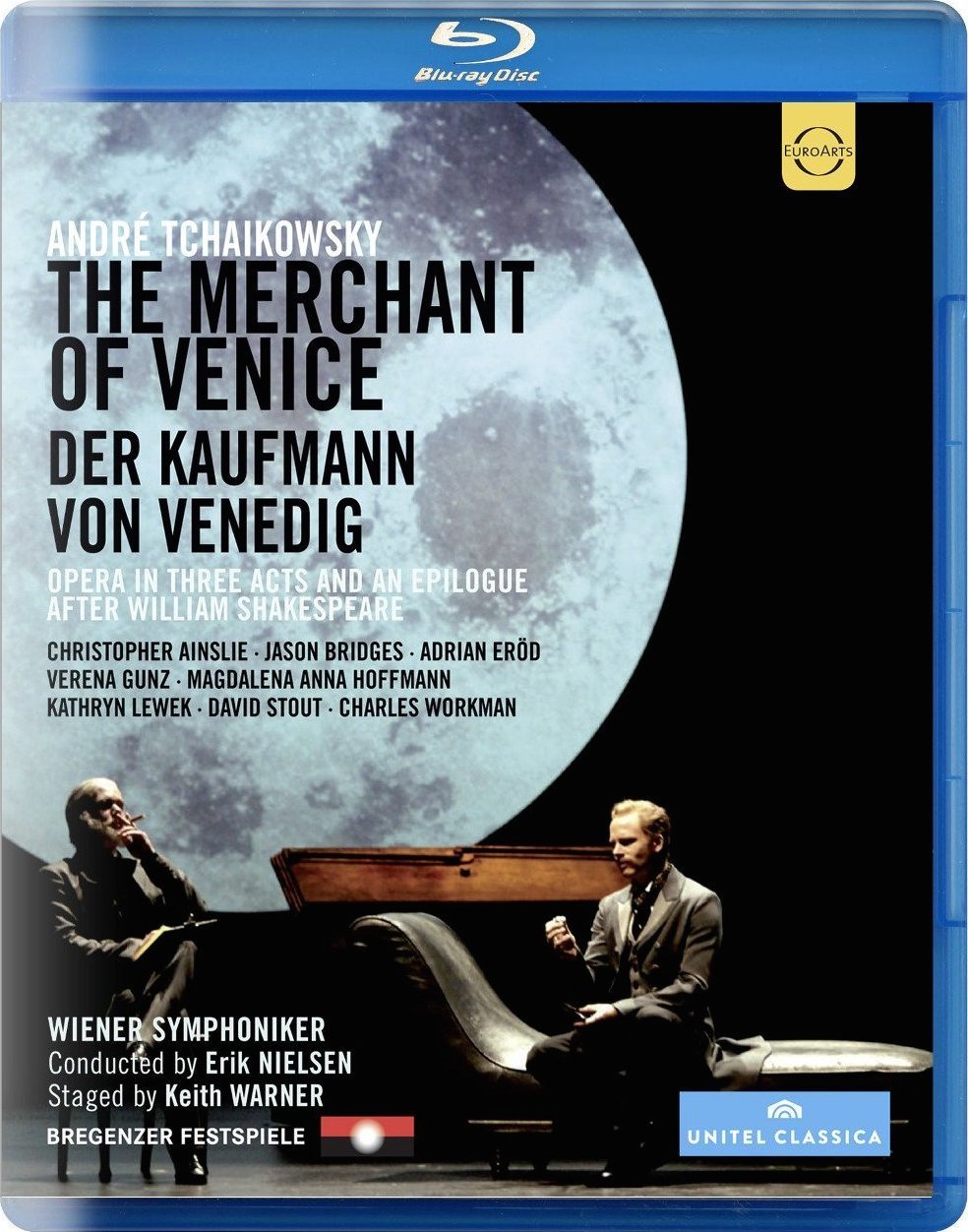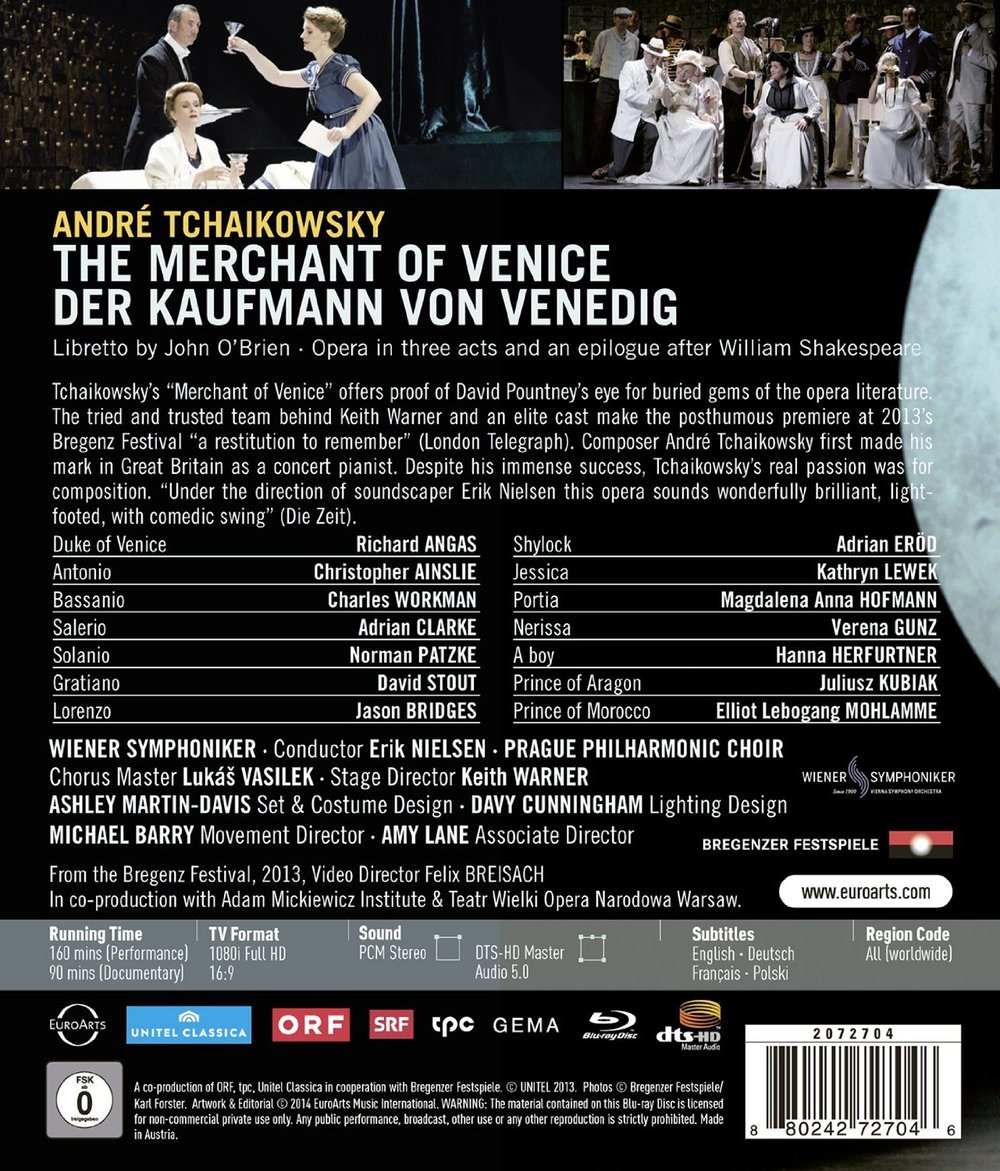

André Tchaikowsky The Merchant of Venice opera to a libretto by John O'Brien. Directed 2013 by Keith Warner at the Bregenz Festival (at the indoors stage and not the lake venue). Stars Richard Angas (Duke of Venice), Christopher Ainslie (Antonio), Charles Workman (Bassanio), Adrian Clarke (Salerio), Norman Patzke (Solanio), David Stout (Gratiano), Jason Bridges (Lorenzo), Adrian Eröd (Shylock), Kathryn Lewek (Jessica), Magdalena Anna Hofmann (Portia), Verena Gunz (Nerissa), Hanna Herfurtner (A Boy), Juliusz Kubiak (Prince of Aragon), and Elliot Lebogang Mohlamme (Prince of Morocco). Erik Nielsen conducts the Wiener Symphoniker and the Prague Philharmonic Choir (Chorus Master Lukáš Vasilek). Set and costume design by Ashley Martin-Davis; lighting design by Davy Cunningham; movement direction by Michael Barry; associate direction by Amy Lane. Directed for TV by Felix Breisach. Sung in English. Released 2014, this disc has 5.0 dts-HD Master Audio. Grade: NA
David Pountney is the Artistic Director of the Bregenz Festival where he directed the world premiere of The Passenger opera in 2010. Now he gets credit for another world premiere with the Bregenz production of The Merchant of Venice by André Tchaikowsky. Tchaikowsky finished his The Merchant of Venice in 1982, but nobody would take a chance on staging it until Poutney took it up.
André Tchaikowsky's real name was Krauthammer. A Polish Jew, he lived for a while as a child in the Warsaw Ghetto. But his mother acquired a false ID for him with the name Tchaikowsky. They left the ghetto and survived the war in hiding. After WW II, André had a successful career as pianist, but his real love was composing. He was also a Shakespeare fan.
The man in the image above is David Tennant playing Hamlet in the grave-digger scene. Tennant is holding in his hand the actual skull of André Tchaikowsky. André left his skull to the Royal Shakespeare Company with the request that it be used a prop in this scene. For some time the Company members debated whether it would be in good taste or even ethical to do this. But the legend of the skull and its fame continued to grow until the Company decided to honor Tchaikowsky's request. I'm not making this up. You can research this as I did on the Internet, where everything you read is, of course, accurate and true.
David Shengold, writing in the December 2014 Opera News (page 60-61), praised the singers but feels the libretto is too long. He concludes this opera "remains more a worthwhile curiosity than a recovered treasure." Mike Ashman was far more enthusiastic in the November 2014 Gramophone (page 93) stating, "The production and its realisation here are extremely happy events. Playing, conducting, and filming serve [the] piece and production well; hugely recommended, and an event to which you may be tempted to return often."
